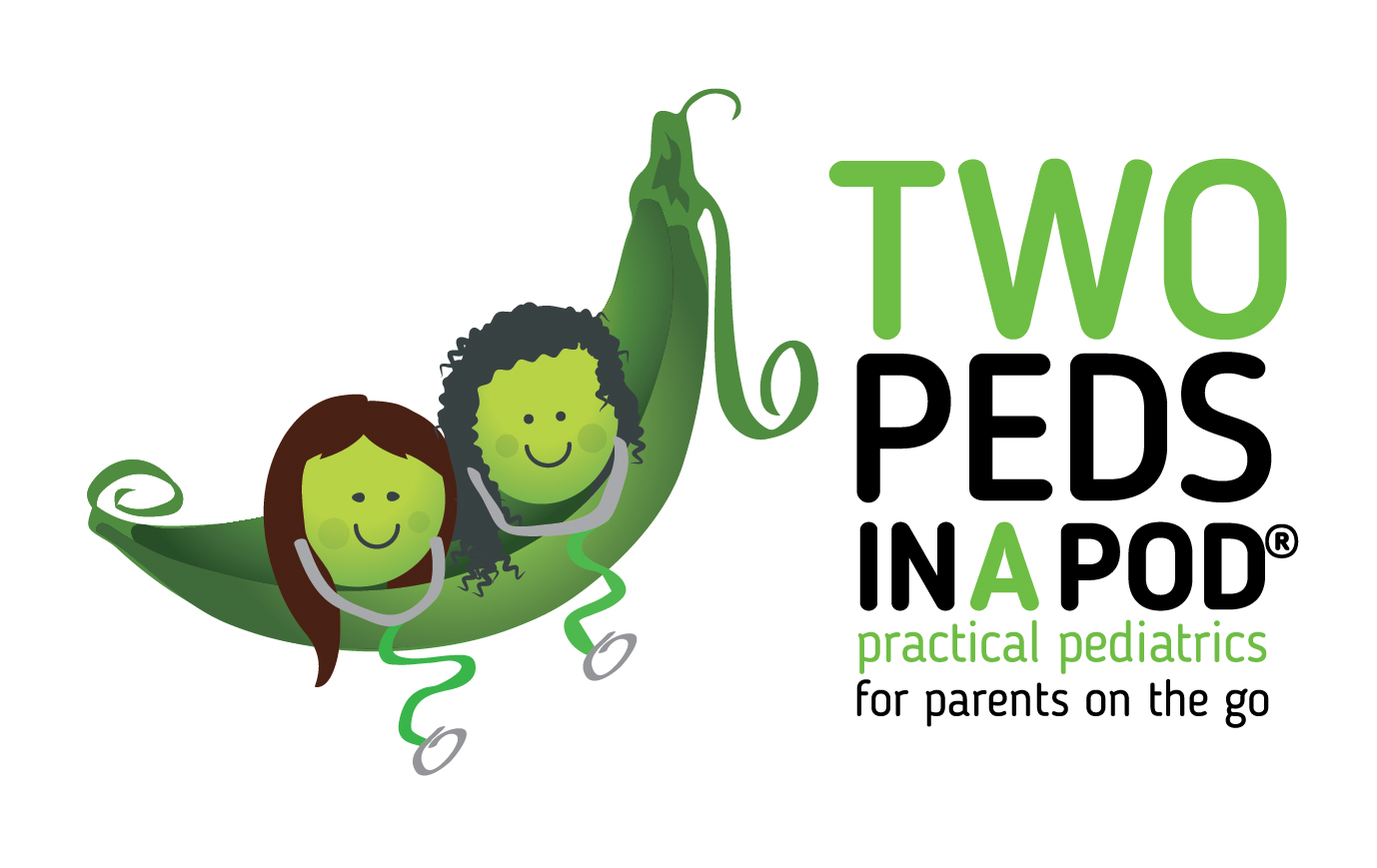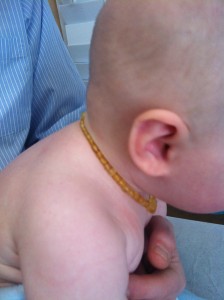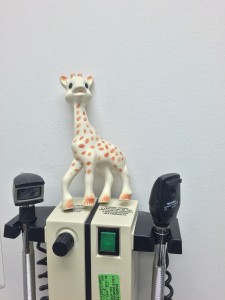About five years ago, we started noticing Amber Bead Necklaces adorning the necks of infants. We also noticed a plastic giraffe named Sophie. These relative newcomers are the latest in a long line of treatments that claim to soothe the discomfort of teething. Some work. Some don’t. And some are dangerous.
If you look at the consumer product safety commission recalls over the years, recalled teething devices and other baby products usually have a two things in common: they have small pieces that can come off and become a choking hazard, or they can cause a baby’s neck to become caught and cause strangulation.
We worry about Amber Beads necklaces. They fit all the potential safety hazard criteria. Although they are not to be chewed on (they purportedly work by excreting a mysterious substance into the skin of an infant), you never know when a bead will pop off and pose a choking hazard or the necklace will get caught and cause strangulation. Besides, we find it odd that parents would be willing to let an unknown substance seep into their baby’s skin.
Also, the FDA has repeatedly warned against the use of topical anesthetics. Benzocaine gels can lead to methhemoglobinemia, a rare but serious and potentially fatal condition. Adults will sometimes use viscous lidocaine prescribed for themselves on a baby’s gums, but any numbness extending to the back of the throat can make it difficult for babies to swallow.
Ultimately, the best cure for teething discomfort is the emergence of a tooth. Until then, chewing on a safe toy or cool wash cloth and an occasional dose of acetaminophen or ibuprofen (if over six months old) can be helpful.
Be patient with teething. “Curing” teething does not cure all maladies. In fact, parents should be aware of these symptoms which are NOT caused by teething:
- Teething does not cause fever. Fever usually indicates infection somewhere: maybe a simple viral infection such as a cold, or maybe a more severe infection such as pneumonia, but parents should NOT assume that their baby’s fever is caused by teething. These babies could be contagious. Parents should not expose them to others with the false sense of security that they are not spreading germs
- Teething does not typically occur in four-month-olds. Usually the first teeth erupts at around six months of age. Some don’t get a tooth until their first birthday. Most drooling and mouthing behavior prior to six months, such as babies putting hands in their mouths, is developmental. Although you may not see a tooth erupt for a few months, babies at this age still enjoy gnawing on a toy.
- Teething does not cause diarrhea severe enough to cause dehydration. If a child has severe diarrhea, then he most likely has a severe stomach virus or another medical issue.
- Teething does not cause a cough severe enough to increase work of breathing. Babies make more saliva around four months of age and this increased production does result in an occasional cough. But babies never develop problems with breathing or a severe cough as a result of teething. Instead, suspect a cough virus or other cause of cough such as asthma.
- Teething does not cause pain severe enough to trigger a change in mental state. Some children get more cranky as their gums swell and redden with erupting teeth. But, if parents cannot console their crying/screaming child, the child likely has another, perhaps more serious, cause of pain and needs an evaluation by her pediatrician.
From a logic standpoint, if teething causes symptoms as babies get their primary teeth, shouldn’t incoming permanent teeth cause the same symptoms? Yet we’ve never heard a parent blame teething for a runny nose, rash, cough, fever, or general bad mood in an eight, nine, or ten-year-old child who is growing permanent teeth.
Maybe these parents are too busy bemoaning the cost of early orthodontal work.
Julie Kardos, MD and Naline Lai, MD
©2015 Two Peds in a Pod®





